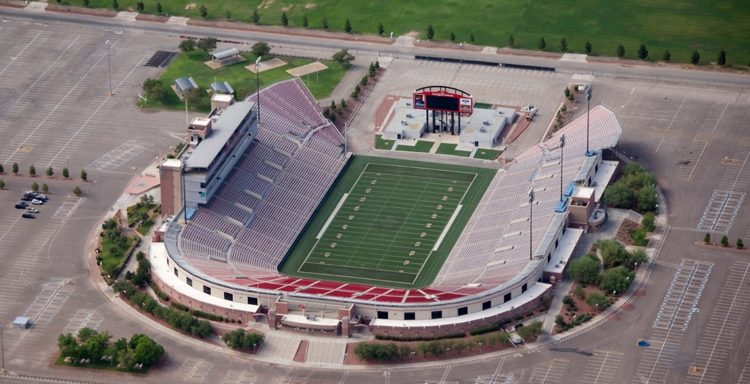Forty-two acres near the University of Nevada, Las Vegas (UNLV) could be the new home of the Rebel’s football team and quite possibly a National Football League (NFL) franchise as a consortium of investors led by casino giant Las Vegas Sands Corp. (LVSC) plans to build a $1 billion domed stadium.
Thursday, LVSC senior vice president of governmental relations and community development Andy Abboud, said, in order to attract more tourists to Southern Nevada, the city of Las Vegas needs a modern stadium with seating for a minimum of 65,000. He added that regardless of an NFL team, the stadium concept will go forward. Abboud said additional opportunities for the stadium include, “conference championships, bowl games, NFL exhibition football, boxing, soccer, neutral site games, and music festivals,” according to the Las Vegas Review-Journal.
The Oakland Raiders owner, Mark Davis, along with team representatives are scheduled to meet and tour the site with LVSC Chairman and CEO Sheldon Adelson today. According to SFGate, the Raiders bid to relocate to the Los Angeles area was pulled by the organization on January 12 after it became clear the move wasn’t supported by NFL owners. Instead, the St. Louis Rams got the nod to make the move to Los Angeles. However, officials from other NFL teams have had conversations with the Sands, Abboud said.
Only a concept at this point, the project involves UNLV and Los Angeles-based Majestic Realty Co. Earlier this month, a donation through the UNLV Foundation provided UNLV with the $50 million needed to purchase 42 vacant acres along Tropicana Avenue. The University wants out of the 45-year-old Sam Boyd Stadium (pictured) in the east valley and to relocate to a new facility closer to campus.
The Adelson family or the LVSC would be contributors of an unspecified large portion of the financing in what Abboud said would be a “public-private partnership.” Financing for the project could also be raised by the company, which operates the Palazzo and The Venetian in Las Vegas, as well as casinos in Singapore, Macau, and Pennsylvania, said Abboud. Legislative approval may be sought by the LVSC for diversion of tax revenues to the project from hotel rooms that now support the Las Vegas Convention and Visitors Authority, according to Abboud. The Southern Nevada Tourism Infrastructure Committee, which finds new ways to grow the tourism economy, will be presented with the idea by the company in February or March.
The stadium plan, however, isn’t without controversy. Public financing would also be sought for part of the $2.3 billion Convention Center District improvement program of the former Riviera site, which the Authority plans to redevelop, and the LVSC has been critical of. Also critical of the project is Venetian-Palazzo President George Markantonis, who considers it inappropriate to spend public money on the Las Vegas Convention Center because it would cannibalize business from his company’s Sands Expo and Convention Center. And while anxious to learn about the stadium proposal, Convention authority CEO Rossi Ralenkotter, was less enthusiastic about the diversion of tax revenues from hotel rooms to fund the stadium.



